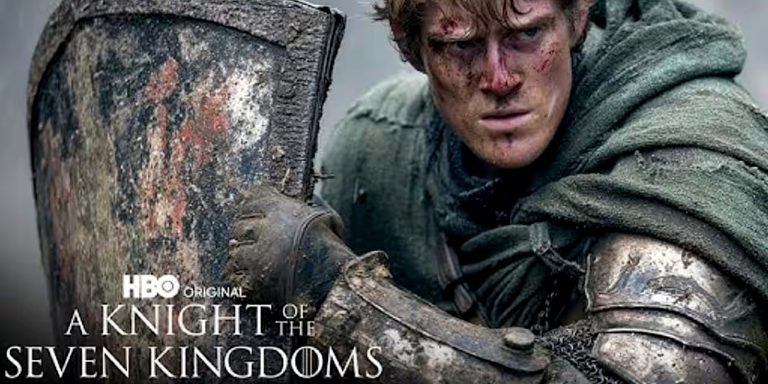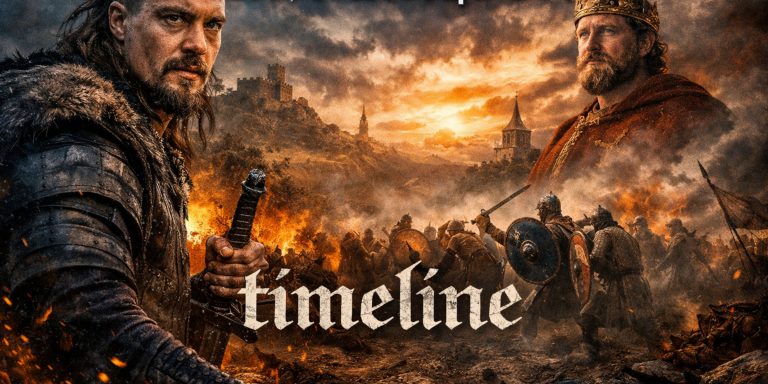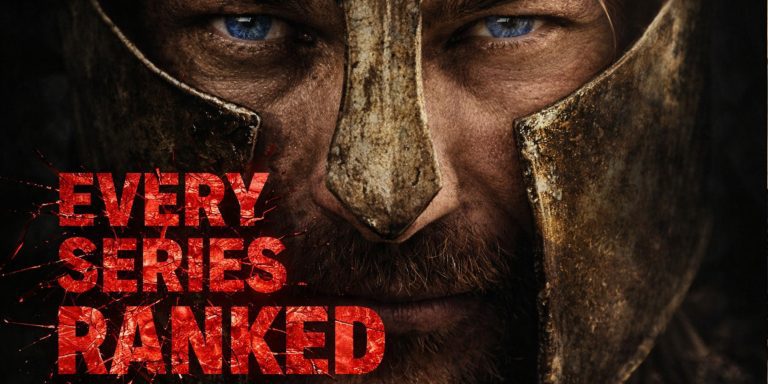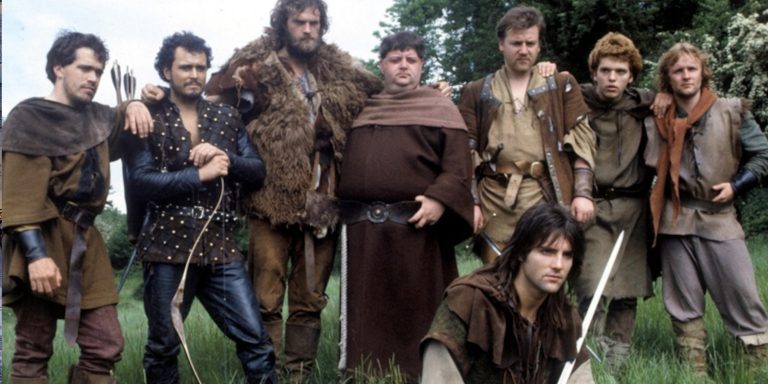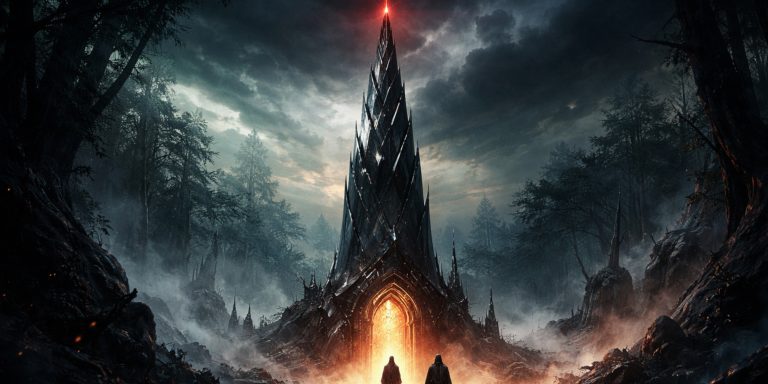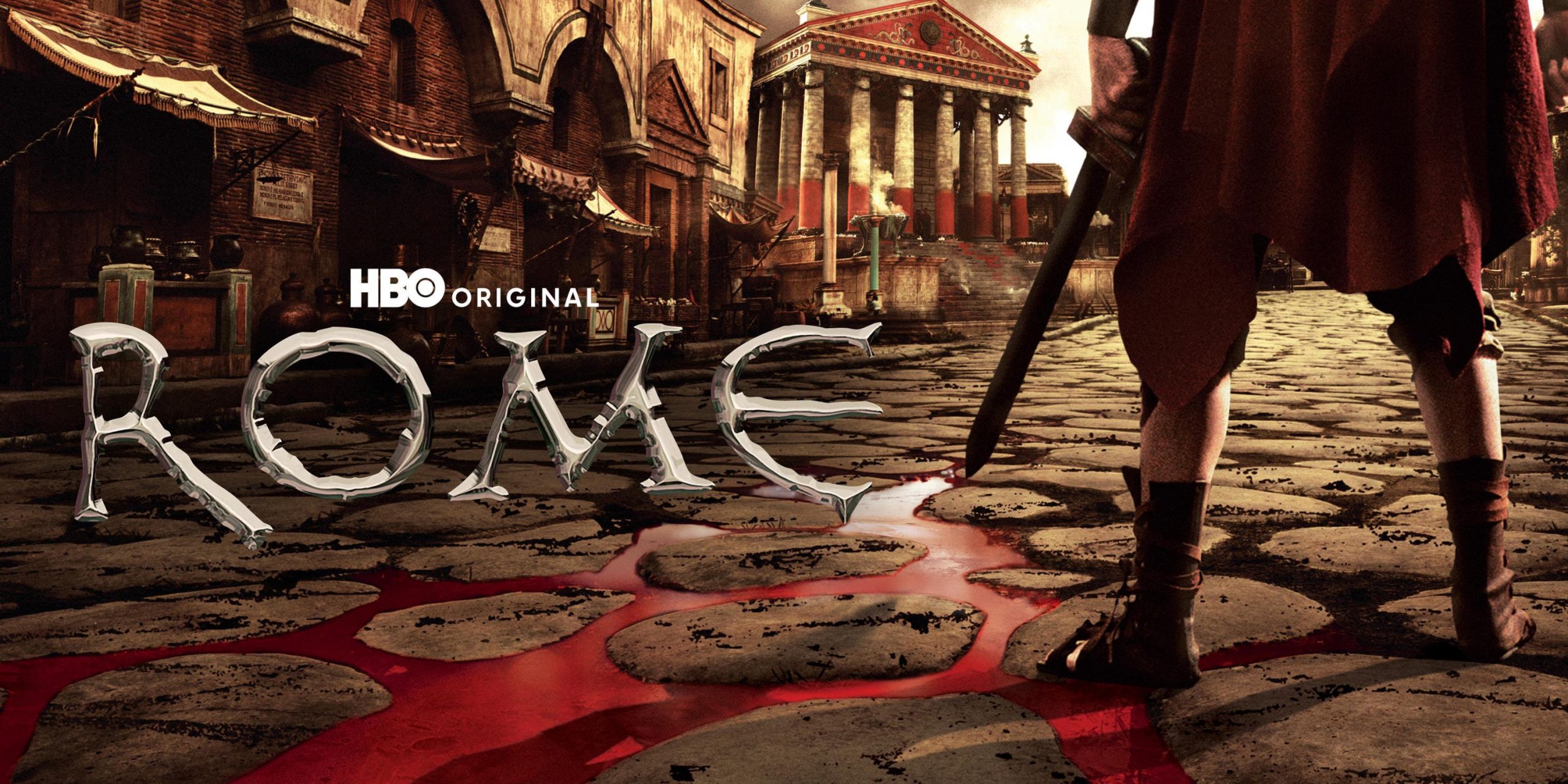
When Rome premiered on HBO in 2005, it wasn’t just another historical drama. It was a chaotic, blood-soaked, and beautifully written epic about the people who built and broke an empire. What made it so captivating wasn’t just the politics or battles, but the characters, messy, ambitious, and all too human. Whether you’ve just discovered it or you’re on your fifth rewatch, here’s every major character explained, from the Senate steps to Cleopatra’s silk-draped chambers.
Lucius Vorenus – The Honourable Soldier
A man constantly torn between duty and desire, Vorenus (played by Kevin McKidd) is the moral backbone of the series. He’s a disciplined Roman centurion who tries to live by the Republic’s ideals, even as those ideals crumble around him. His loyalty to Rome often clashes with his loyalty to his family and his volatile best friend, Titus Pullo. Watching Vorenus descend from rigid soldier to weary killer is one of the show’s most tragic arcs, like watching a Roman statue crack under the weight of real life.
Titus Pullo – The Chaotic Heart
If Vorenus is the marble, Pullo (Ray Stevenson) is the blood. Loud, impulsive, and occasionally drunk at the worst possible times, Pullo is the kind of man who accidentally changes history just by existing. His friendship with Vorenus drives the entire series, it’s half bromance, half disaster movie. Underneath his violence and swagger, though, Pullo has a strange innocence, making him one of the most loveable murderers ever written.
Gaius Julius Caesar – The Visionary Politician
Ciarán Hinds’ portrayal of Caesar is a masterclass in restrained power. This is Caesar as strategist and statesman, not marble god. He’s charming, manipulative, and relentlessly focused on reshaping Rome in his image. You can feel the intelligence behind every glance, the calculation behind every smile. Rome doesn’t worship him, it dissects him, showing a man who could conquer Gaul but never truly control the people closest to him.
Marcus Junius Brutus – The Idealist Torn Apart
Brutus (Tobias Menzies) is what happens when philosophy meets politics and both lose. He’s the tragic embodiment of loyalty versus conscience, manipulated by those around him and haunted by his own principles. When he finally betrays Caesar, it’s not just an assassination, it’s a nervous breakdown played out on marble steps. His quiet, cerebral nature makes his eventual collapse all the more devastating.
Mark Antony – The Soldier Who Partied Too Hard
James Purefoy’s Antony is pure charisma wrapped in bad decisions. A swaggering warrior who thrives in chaos, he’s equal parts charm and self-destruction. Antony lives for the moment, drinking, fighting, and loving like the world’s about to end, which in Rome, it usually is. His later romance with Cleopatra shows a man trying, and failing, to be more than a soldier.
Atia of the Julii – The Ultimate Schemer
Polly Walker’s Atia might be the most underrated powerhouse in television history. She’s ruthless, manipulative, and completely magnetic. Atia treats politics like blood sport, using seduction, bribery, and gossip as her weapons. Yet beneath the cruelty is a woman terrified of losing relevance in a world run by men. She’s the original HBO anti-heroine, a forerunner to Cersei Lannister with better jewellery.
Servilia of the Junii – The Woman Who Cursed Caesar
Lindsay Duncan’s Servilia is the definition of vengeance dressed in silk. Her affair with Caesar and rivalry with Atia fuel much of Rome’s early drama, but she’s more than a plot device. Servilia represents the fury of a woman scorned in a world that leaves her no power but manipulation. Her curse scene remains one of the most chilling moments in the series, quiet, controlled rage burning through ritual.
Octavian (Augustus) – The Ice-Cold Genius
Introduced as a clever, unsettling boy and later played by Simon Woods, Octavian is the future in human form, calculating, emotionless, and almost alien in his composure. While others spill blood in the streets, he builds empires through intellect. Watching him evolve into Augustus is like watching logic slowly choke passion to death. He’s what happens when Rome grows up.
Cleopatra VII – The Queen Who Played the Game
Lyndsey Marshal’s Cleopatra isn’t the goddess of legend. She’s whip-smart, pragmatic, and aware that beauty is just one of many tools in her arsenal. Her relationship with Antony is political theatre laced with genuine affection. Cleopatra’s charm lies not in seduction but survival, she reads the room better than anyone in Rome and knows when the game’s over.
Niobe – The Heart Torn Apart
As Vorenus’s wife, Niobe (Indira Varma) carries much of the emotional weight of the early series. Her story is domestic tragedy against a backdrop of empire, a reminder that for every soldier’s glory, there’s a family left behind. Her secret about her child detonates one of Rome’s most devastating twists, turning her life and Vorenus’s sanity to ash.
Posca and Eirene – The Survivors
Even the side characters in Rome are written with depth. Posca, Caesar’s clever slave, is the quintessential survivor, snide, observant, and always on the winning side. Eirene, Pullo’s captured slave turned wife, embodies the show’s moral centre, showing humanity in a world that rewards brutality. Their small arcs feel vital because in Rome, even the lowest have stories worth hearing.
Character Relationships and Power Dynamics
| Character | Key Relationships | Power Role | Themes & Traits |
|---|---|---|---|
| Lucius Vorenus | Titus Pullo (brother-in-arms), Niobe (wife), Octavian (later service) | Loyal soldier caught between duty and love | Honour, guilt, survival |
| Titus Pullo | Vorenus (friend), Eirene (wife), Caesar (commander) | Foot soldier turned accidental hero | Chaos, redemption, loyalty |
| Julius Caesar | Brutus (protégé), Servilia (lover), Antony (general), Atia (ally) | Dictator and reformer | Vision, ambition, hubris |
| Marcus Brutus | Servilia (mother), Caesar (mentor), Cassius (co-conspirator) | Philosopher turned assassin | Duty, conscience, tragedy |
| Mark Antony | Caesar (ally), Atia (lover), Cleopatra (queen and partner) | Military powerbroker | Passion, pride, downfall |
| Atia of the Julii | Octavian (son), Antony (lover), Servilia (enemy) | Matriarch and manipulator | Control, fear, influence |
| Servilia of the Junii | Brutus (son), Caesar (lover), Atia (rival) | Aristocratic schemer | Revenge, heartbreak, defiance |
| Octavian/Augustus | Atia (mother), Antony (rival), Livia (future wife) | Master strategist, future emperor | Logic, ambition, destiny |
| Cleopatra VII | Antony (lover), Caesar (former ally), Octavian (enemy) | Foreign ruler and political survivor | Power, intelligence, seduction |
| Niobe | Vorenus (husband), Pullo (confidant) | Civilian amid chaos | Love, loss, sacrifice |
| Posca | Caesar (master), Antony and Octavian (later allies) | Political opportunist | Adaptability, wit, survival |
| Eirene | Pullo (husband), Vorenus (friend) | Moral anchor | Compassion, faith, endurance |
Legacy of the Characters
The brilliance of Rome lies in its refusal to separate personal ambition from historical inevitability. These characters aren’t mythic symbols; they’re people clawing for relevance in a collapsing system. Every betrayal feels human, every triumph temporary. Two decades later, they still feel alive, messy, contradictory, unforgettable.
Watch the trailer:

